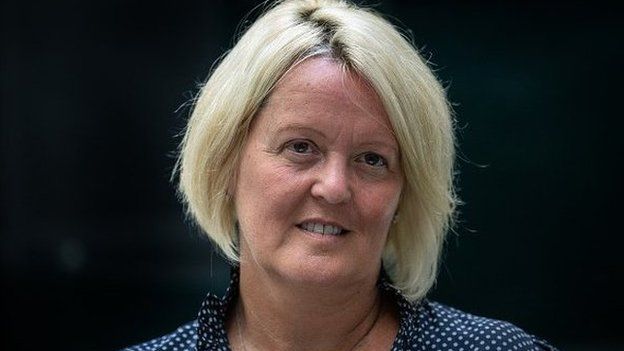 Image source, Getty Images
Image source, Getty Images
By Michael Race
Business reporter, BBC News
The former boss of NatWest, Dame Alison Rose, will lose out on £7.6m after she admitted to discussing the closure of Nigel Farage's bank account.
Dame Alison will receive her £2.4m fixed pay package, but will not benefit from share awards and bonuses she had been previously entitled to.
Dame Alison resigned in July after she spoke about Mr Farage's bank account with Coutts, which is owned by NatWest.
NatWest said its former boss had not been given "good leaver" status.
If she had, Dame Alison would have been entitled to receive the entire amount which, after including her yearly salary, would have exceeded £10m.
But NatWest said there had been "no finding of misconduct" made by the bank against Dame Alison.
Last month, NatWest, which is 39% owned by the taxpayer, admitted to "serious failings" in its treatment of former UKIP leader, Mr Farage, after an independent report found it failed to communicate its decision properly when it decided to shut his Coutts account.
Mr Farage, a prominent Brexiteer, said earlier this year that he had been told Coutts, the prestigious private bank for the wealthy, was closing his account but he had not been given a reason.
The BBC reported that his account was being closed because he no longer met the wealth threshold for Coutts, citing a source familiar with the matter.
Mr Farage later obtained a report from the bank which indicated his political views were also considered.
In the aftermath, Dame Alison resigned after admitting she had made a mistake in speaking about Mr Farage's relationship with the bank
An independent review into the closure of Mr Farage's account found that it was lawful and based mainly on commercial reasons.
But it found other factors were considered including Coutts' reputation with customers, staff and investors due to Mr Farage's public statements on issues such as the environment, race, gender and migration.

 Movie
Movie 5 months ago
108
5 months ago
108 






![Presidents Day Weekend Car Sales [2021 Edition] Presidents Day Weekend Car Sales [2021 Edition]](https://www.findthebestcarprice.com/wp-content/uploads/Presidents-Day-Weekend-car-sales.jpg)



 English (United States)
English (United States)